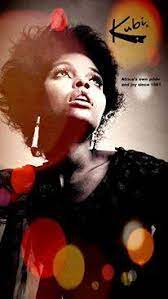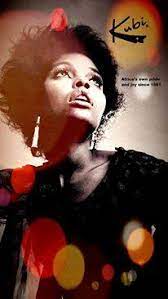KUBI CHAZA – Zimbabwean Woman who “Betrays” 007 James Bond
Walking Down The Memory Lane - Lest We Forget | 1ZimLegends

KUBI CHAZA – Zimbabwean Woman who “Betrays” 007 James Bond

Bioscope is the term still widely used in some countries to mean cinema. In Rhodesia bioscopes were among the most popular forms of entertainment for youths and adults alike from the fifties. A weekend function at a boarding school which had bioscope slotted for entertainment would be a memorable event that still lingers in the memories of the generations that experienced those exciting moments.
Special reservations had to be made to hire each reel of film for school functions amid stiff competition from many others, for the limited famous movie series in the different genres ranging from horror, action, romance or drama.
The stories appeared so real on the big screen that viewers would hardly imagine that it was all fiction. Among the hilarious and outstanding series was 007 James Bond written in 1954 by Ian Fleming in his second novel Live and Let Die. Fleming created the character of an intelligence officer in the Secret Intelligence Service MI6 who was full of insurmountable, mesmerising tricks.
In the days of the big screen, there was virtually no film industry to talk of in Rhodesia and if any, it would have been a preserve of the minority white settlers. To imagine that in the seventies, a black Rhodesian woman could appear in one of the 007 James Bond series would be tantamount to hallucination.
But one Ethel Kubvoruno Chaza Indi did the unexpected when she featured one of the James Bond bioscope series in the 1970’s. Not much is known about her upbringing but the few who remember her from her school days say she used to be called by her other name Ethel. She is the second born in a family of seven six girls and a boy. Her father was a policeman who settled in Highfields after his retirement. For her education, she went to Murehwa Mission in Mashonaland East Province. One of her classmates at Murehwa in the 1950’s Esnath Nyamupingidza described her as “very sociable a bit playful and an average student”
Kubi Chaza, as she is affectionately known, was an actress in the United Kingdom when she appeared in Live and Let Die released in the United States on 27 June 1973. She played the role of the sales girl in the Oh Cult Voodoo shop. Kubi wraps an item for James Bond, played by Roger Moore, and then rings Dr Kananga aka Mister Big soon after Bond leaves the shop. Mr Big is a drug baron and dictator of a fictitious Caribbean island named San Monique.
The spy movie concept of Live and Let Die is “I will live, but I will let all others die.” which is viewed as dangerous philosophy, though appropriate for James Bond spy series. Kubi had to be psychologically primed for the role of a voodoo informant which was no easy fit for the ordinary woman from Africa.
Following the attainment of independence in 1980, Kubi and her husband John Indi returned to Zimbabwe. They established a cosmetics production company House of Kubi, now a well-known brand in Southern Africa, which manufactures products specifically for African skin and hair.
Kubi, a member of the Women Filmmakers of Zimbabwe continued to work in film-making while the husband is an actor. In 1989 Kubi produced I Am the Future in which the main character is popular musician Ambuya Stella Chiweshe. The film is about a young woman who travels to the big city to escape the war in the rural areas.
In 1993, she featured in the film Neria written by Tsistsi Dangarembga and directed by Godwin Mauru with Oliver Mutukudzi providing the soundtrack.
Kubi who is the secretary-general of the Zimbabwean Indigenous Business Women, is very active in community development programmes, particularly on issues affecting women.
She is part of a group of women who established Our Children Our Future Trust (Ocoft), which assists children whose mothers are imprisoned.
“One of the greatest punishments incarceration carries with it is separation of parents from their children. Some of the parents are those already struggling with survival issues such as poverty, discrimination, instability, violence and limited access to sources of support,.” said Kubi at the launch of the organisation in 2013.


